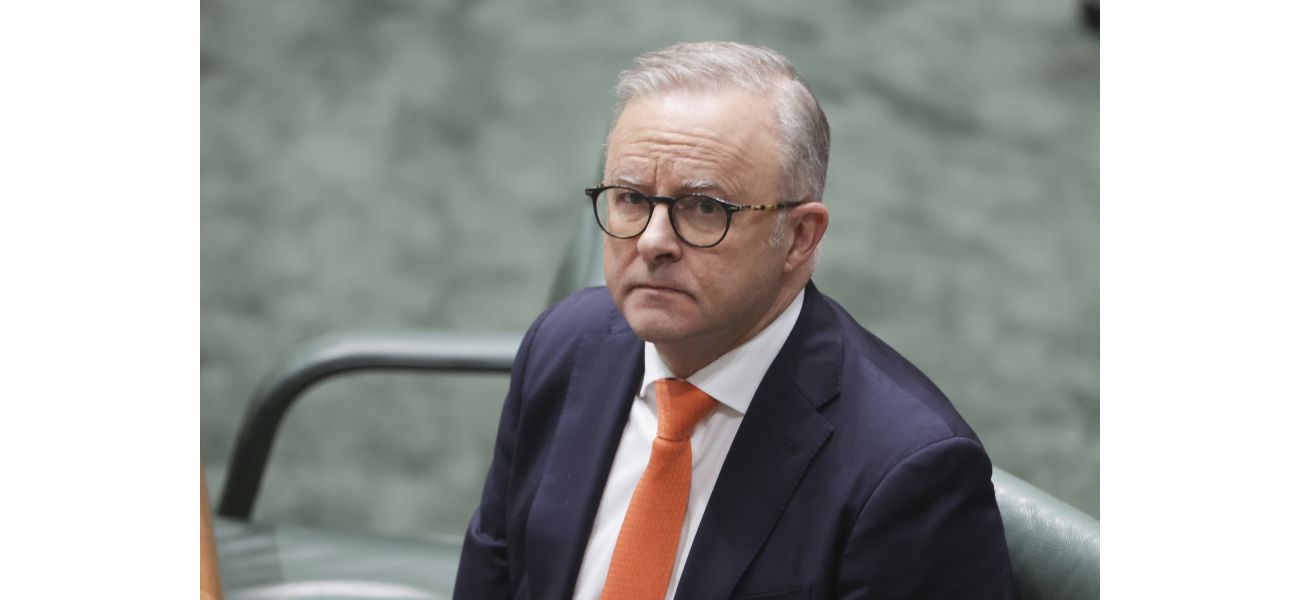For the first time since the last election, the coalition is leading in the polls.
Coalition surpasses Labor Party in polls for first time since 2022 election.
October 13th 2024.

In a recent poll conducted by Newspoll for News Corp, the Coalition has taken the lead over the Labor Party for the first time since the 2022 election. The party now stands at 51% on a preferred basis, with a two-point lead over Labor at 49%. Interestingly, this shift in the polls can be attributed to the preference flows from minor parties, as the primary votes for both the Coalition and Labor have remained unchanged from the previous poll.
One notable change in the poll has been the decrease in the Greens' primary vote, falling by one percent to 12 percent. On the other hand, Pauline Hanson's One Nation has seen a gain of one percent, bringing their vote to 7 percent. While these numbers may seem small, they have contributed to the two-point shift in the two-party-preferred vote.
Despite this shift, Anthony Albanese remains the preferred prime minister with 45 percent of the vote, compared to Peter Dutton's 37 percent. However, Albanese's approval rating has fallen to a new low, standing at 40 percent. This decline could be a cause for concern for the Labor Party, as they gear up for the next federal election, expected to be held in either March or May 2025.
The Coalition's current lead is still not strong enough for them to form a minority government, with a minority Labor government being the more likely outcome. However, this result has definitely caused some nerves for Labor and has put them on alert. The recent parliamentary week, which coincided with the one-year anniversary of the Hamas terrorist attack, may have also played a role in shaping the current poll numbers.
Apart from this, voters are also grappling with concerns over the cost of living and housing. In fact, the first week of the survey period saw a lot of debate over these issues, including discussions on supermarket prices and potential changes to negative gearing by the Labor Party. The Reserve Bank's warning that mortgage holders may not see any relief from interest rate cuts in the near future has only added to these worries.
In the midst of all this, Albanese's approval ratings have plummeted to their lowest since he became Prime Minister, dropping by three points to 40 percent. This now puts him on par with opposition leader Peter Dutton. As the political landscape continues to shift and evolve, it will be interesting to see how these numbers play out in the upcoming federal election.
One notable change in the poll has been the decrease in the Greens' primary vote, falling by one percent to 12 percent. On the other hand, Pauline Hanson's One Nation has seen a gain of one percent, bringing their vote to 7 percent. While these numbers may seem small, they have contributed to the two-point shift in the two-party-preferred vote.
Despite this shift, Anthony Albanese remains the preferred prime minister with 45 percent of the vote, compared to Peter Dutton's 37 percent. However, Albanese's approval rating has fallen to a new low, standing at 40 percent. This decline could be a cause for concern for the Labor Party, as they gear up for the next federal election, expected to be held in either March or May 2025.
The Coalition's current lead is still not strong enough for them to form a minority government, with a minority Labor government being the more likely outcome. However, this result has definitely caused some nerves for Labor and has put them on alert. The recent parliamentary week, which coincided with the one-year anniversary of the Hamas terrorist attack, may have also played a role in shaping the current poll numbers.
Apart from this, voters are also grappling with concerns over the cost of living and housing. In fact, the first week of the survey period saw a lot of debate over these issues, including discussions on supermarket prices and potential changes to negative gearing by the Labor Party. The Reserve Bank's warning that mortgage holders may not see any relief from interest rate cuts in the near future has only added to these worries.
In the midst of all this, Albanese's approval ratings have plummeted to their lowest since he became Prime Minister, dropping by three points to 40 percent. This now puts him on par with opposition leader Peter Dutton. As the political landscape continues to shift and evolve, it will be interesting to see how these numbers play out in the upcoming federal election.
[This article has been trending online recently and has been generated with AI. Your feed is customized.]
[Generative AI is experimental.]
0
0
Submit Comment





